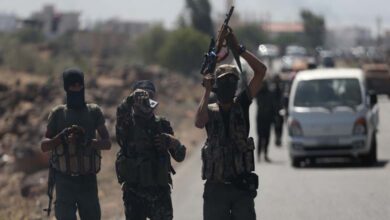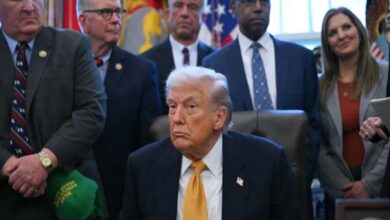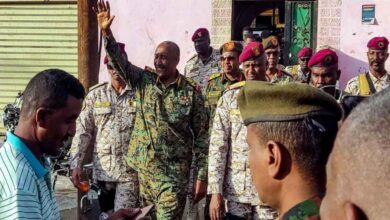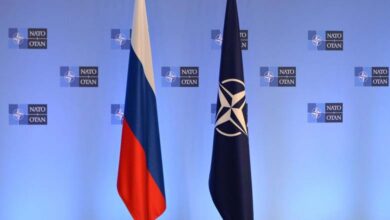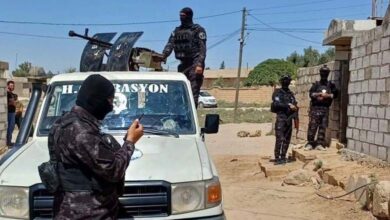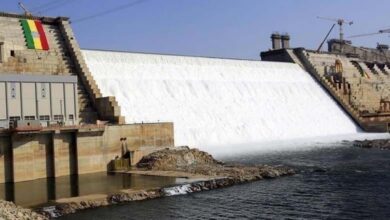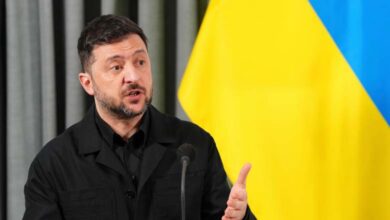Al-Burhan’s insistence on replacing the currency threatens to deepen Sudan’s economic crisis
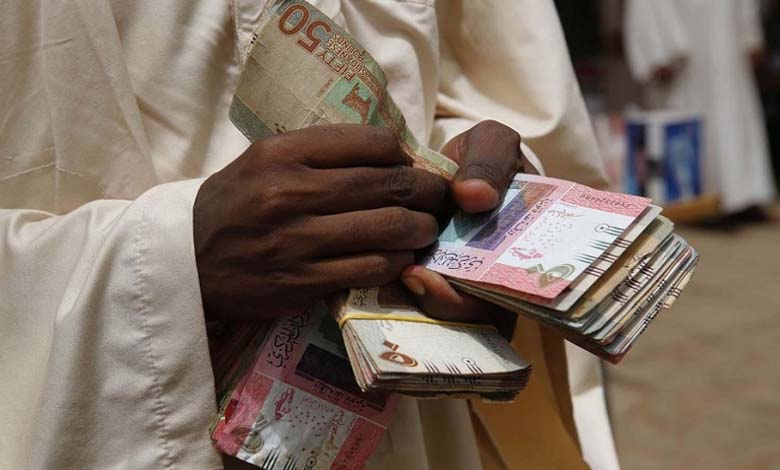
The decision has specific objectives related to the war, aiming to “eliminate” the currency held by citizens in the areas controlled by the Rapid Support Forces.
-
“Rapid Support Forces” Welcome Washington’s Call for Sudanese Talks in Switzerland and Confirm Their Participation
-
The Popular Movement Insists on Including Rapid Support Forces in Negotiations with the Government
The High Committee for Currency Change and Replacement in Sudan has set December 10th as the date for resuming the currency replacement operation in several states of the country, which will last for two weeks, despite the negative consequences this move has on the economy, amid rising concerns that it could lead to the administrative and economic separation of the country.
Political forces have warned of the dangers of the Port Sudan government’s plan to change the currency and its impact on the areas it does not control. Meanwhile, the Sudanese pound’s exchange rate has dropped to its lowest level, with one dollar reaching around 2500 pounds, an increase of 400% since the start of the war.
-
UN Concerns Grow Over Escalating Fighting in El Fasher Between Army and Rapid Support Forces
-
The crisis worsens in Sudan… 8 Months of fighting between the Army and Rapid Support Forces, What’s next?
The Rapid Support Forces have described the decision as part of a plan to divide Sudan and separate its regions, urging citizens not to comply with the government’s decisions and not to deposit their money. They also called for avoiding the new currency, deeming it “invalid.”
The civil administration of the Rapid Support Forces issued a decision banning the circulation of the new Sudanese currency in the areas under its control in Darfur.
Mohamed Ahmed Hassan, head of the civil administration in South Darfur, announced that they would not allow the circulation of the newly issued 1000-pound notes by the Central Bank of Sudan in their controlled areas, stating, “The new currency is invalid, and we will not allow it to enter the state.”
-
Rapid Support Forces enter wad madani in a victory tightening the noose on evidence
-
Meeting between Representatives of the Sudanese Army and Rapid Support Forces in Addis Ababa
This decision has led to negative economic consequences, notably affecting crop and livestock markets in Darfur. Many traders have refrained from selling, fearing they will have to accept payments in old currency.
Banking expert and former official at the Bank of Sudan, Mohamed Ismat, stated that this decision could strengthen the division of the country into two regions based on controlling authorities.
He noted that the decision’s objectives are linked to the war, aiming to “eliminate” the currency circulating in the areas controlled by the Rapid Support Forces.
-
Deaths in renewed clashes in Sudan… Rapid Support Forces shoot down army aircraft
-
Sudanese army resorts to drones to halt Rapid Support Forces’ advance
Darfur is facing a cash liquidity shortage, which has led to increased fees for transfers via banking apps like “Bankak,” reaching over 25% in some areas.
Markets have also faced shortages of certain goods after traders ceased offering them, leading to price increases.
The decision negatively impacted crop markets in Nyala, El-Obeid, and Al-Geneina due to limited supply. For example, the price of a sack of millet rose from 125,000 pounds to 150,000 pounds, corn from 70,000 pounds to 90,000 pounds, and sesame from 132,000 pounds to 135,000 pounds.
-
Rapid Support Forces tighten the noose around Sudanese Army headquarters
-
Sudanese Rapid Support Forces leader threatens to pursue Abdul Fattah al-Burhan and calls on the army to withdraw from the fighting
However, the government supported by the army remains determined to adopt the new currency. Minister of Culture and Information and government spokesperson, Khaled Al-Aysar, stated in a press interview that the committee had made all necessary technical and security arrangements to begin the currency replacement process on December 10, continuing until December 23, in the Red Sea, Kassala, Gadaref, Nile-North, and Blue Nile states.
Al-Aysar emphasized that this decision is in Sudan’s interest, aiming to protect the national economy and combat criminal activities from the past. He added that the replacement would be done via bank deposits into accounts, urging citizens to open bank accounts at nearby branches. He highlighted that banks would facilitate account opening procedures and receive deposits from customers smoothly.
-
New Field Gains for Rapid Support Forces Disrupt the Sudanese Army
-
Abu Aqilah Kekel, Commander of Sudan’s Shield Forces, Announces His Joining with His Forces and Equipment to the Rapid Support Forces
He also encouraged citizens to use available electronic payment methods, such as apps, noting that the daily cash withdrawal limit would be 200,000 pounds per client, with no restrictions on electronic payments.
The minister further stated that financial transfers between accounts or via electronic payments would follow the regulations set by the Central Bank of Sudan, and that transfers between bank accounts would be unlimited.
-
Rapid Support Forces Reject Peace Initiative, Implies Support for Coup
-
Following the al-Assad’s method, the Rapid Support Forces are bombing civilian areas with explosive barrels
He revealed that new decisions from the Central Bank of Sudan, binding on all public and private institutions regarding the acceptance of electronic payments, would be issued soon.
On November 9, the Central Bank of Sudan announced the issuance of new currency denominations of 1000 and 1500 pounds, requesting holders of current banknotes to deposit them in their bank accounts without allowing exchanges, and announced that the old notes would be gradually withdrawn from circulation.


